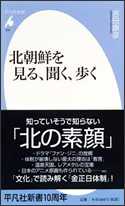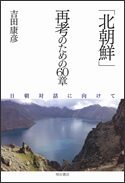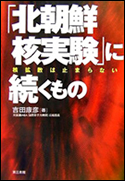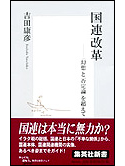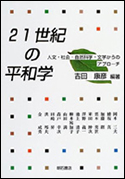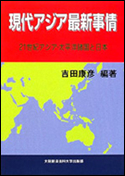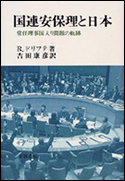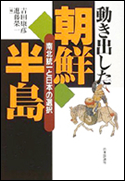2007年3月01日
【12】Analysis of Economic Outlook on North Korea (March 2007)
UN sanctions against nuclear test caused no scars on Kim Jong Il
North Korea's nuclear test was a turning point in its 15-year attempt to deal with the United States with "brinkmanship diplomacy." Chances for political and economic survival of North Korea were apparently overshadowed by the nation's first nuclear explosion test of 9 November 2006 and the subsequent international sanctions as adopted by the UN Security Council in a unanimous decision.
The UN resolution, prompted by Japan and the United States, and supported by China and Russia, had called on all UN Member States to refrain from exporting parts and any sensitive items to be used for nuclear weapons and other weapons of mass destruction to North Korea. It also banned exports to the Kim Jong Il regime of "luxury goods," such as Scotch whisky, French cognac, wine, beef, and raw tuna fish, as well as sweet melon--- all favorite items for the Pyongyang leader, known as a gourmet. Rolex was also included in a prohibitive list, as the expensive Swiss watch was considered to be a "must" for him to curry favor with the military as a basis of his power structure. Passenger cars were added to the "luxury goods."
The Japanese and American diplomats had believed the sanction on exports of such crucial items could lead to an ultimate collapse of the Kim Jon Il regime, which they believed was narrowly sustained by the military. Food shortages were reportedly already severe in the wake of an extensive flood which hit the nation during summer time in 2006. Five months since the dramatic confrontation, however, the UN sanctions obviously have not dealt a serious blow to Pyongyang. The regime was not shaken almost at all.
On the contrary, the Bush Administration made a Copernican change in its policy toward North Korea at the beginning of 2007, accepting direct contact with North Korean and withdrawing its hitherto demand for unilateral abolition of all nuclear materials and weapons on the North Korean side. Tension had mounted with Bush's claim for CVID (Comprehensive, Verifiable and Irreversible Dismantlement) on Pyongyang, while refusing to hold direct negotiations.
This finally led to North Korea's nuclear test, proving Washington's hard- line policy futile and counter-productive. Mr. Christopher Hill, U.S. Assistant Secretary of State, and his North Korean counterpart, Mr. Kim Kae Guan, Vice Foreign Minister, held lengthy and comprehensive talks in Berlin in mid-January in an attempt to iron out their differences. They reached a broad agreement on eventual denuclearization of the Korean Peninsula on a reciprocal basis, with the principle of "words for words" and "action for action."
This was a diplomatic victory for Pyongyang over the Bush Administration. For President Bush suffering a severe military and security setback in the Middle East, North Korea was the sole counterpart, with whom a political and diplomatic solution could be found within his second term for the coming two years.
The sixth round of the six-party talks is now going on in Beijing to draw a concrete road map toward the once-confirmed denuclearization of the Korean Peninsula. Apparently, Pyongyang stand firm in its demand for full normalization of diplomatic ties with Washington and full removal of economic sanctions against what Washington terms "terrorist-supporting regime." The outcome of the talks remains to be seen.
Conclusion is that the Kim Jong Il regime has survived with its nuclear program serving as an effective political weapon and that the long-drawn-out residual Cold-War structure on the Korean Peninsula is finally coming to an end.
Sino-American Collusion found an illusion
Japan and the United States moved quickly for speedy adoption of a coercive resolution in the UN Security Council, after North Korea conducted the nuclear test on 9 October. The resolution as acting under the Chapter Seven of the UN Charter for non-military sanctions was adopted unanimously on 15 October with both China and Russia voting for it.
In the process of consultations, China apparently expressed its regret and even indignation with North Korea in conducting the nuclear test, which plausibly had ignored Beijing's dissuasive advice. Therefore, China's support for the UN resolution was received as an expression of its displeasure against Pyongyang, leading eventually to the ouster of the Kim Jong Il regime.
Consequences, however, showed that China was a wily old fox. The Chinese authorities were conducting transportation control on trains, vans and trucks crossing the China-North Korea border, ostensibly respecting the UN resolution for a couple of weeks, and even reducing crude oil shipment through a pipeline from Danton, a Chinese border town, to Shinwiju, a North Korean city, for a short period.
The Japanese media constantly regarding the Kim Jong Il regime as enemy over the long-unsettled abduction issue reacted jubilantly on the move as an omen toward the "liquidation" of Kim Jong Il by China. Not at all. All this turned out a political gesture.
An official statistics, announced by South Korea's trade association in Seoul on 13 March 2007, showed that the China-North Korea trade marked a record high in 2006, with 1,699,600,000 US dollars, accounting for about 40 percent of Pyongyang's total trade volume. (Second is the North-South trade with 1,000,000,000 dollars) North Korea's imports from China were valued at 1,231,900,000 dollars, showing an increase by 13.6 percent over the previous year. Main import items were crude oil, pork and other meat products, and raw textile materials. The statistics shows that the oil imports remained the same level in volume with 50,000,000 dollars up over the previous year, reflecting the price hike. Experts say that there was no sign of the Chinese following provisions of the UN resolution.
North Korea's exports to China were valued at 467,700,000 dollars, with coal, iron ore and other mineral products as main export items. Iron ore exports marked a 15-percent increase. Another feature was the increased exports of finished textile goods, such as clothes, from North Korea to China. This indicates that labor cost is much lower in North Korea than in China.
As for the "luxury goods," exports from China sharply increased in the place of "the exports from Japan." The 24 items, which Japan had listed up as prohibitive "luxury goods," were made up for by the exports from China, which included meat, fish and passenger cars. An increase by 24 percent was registered by November 2006. It is as clear as crystal that China adamantly sustains the Kim Jong Il regme both politically and economically.
South Korea remains unchanged in its economic support to the North
South Korea's Roh Moo Hyung regime is most eager to extend economic assistance to its northern neighbors, even after the nuclear test and the UN sanctions. The Seoul government refused a U.S. request to freeze operation of an industrial complex in a north-south joint venture in Kaesong near the military demarcation line and a tourist business in Kumguansang in the north, which an average 100,000 South Korean tourists travel for sight-seeing. Seoul argued that these are nothing to do with the North's nuclear test.
On the contrary, South Korea has decided to revive its aid of food and agricultural products with 500,000 tons of rice and 350,000 tons of fertilizer to the North. Seoul's aid covering 30 items is valued at 110,000,000 US dollars, approximately at the same level as the previous year. Seoul had temporarily suspended its aid to the North in the wake of Pyonyang's missile tests in July 2006.
In the six-party talks in Beijing, South Korea has expressed its readiness to supply 2,000,000 kilowatts of electricity to the north to cover the nation's acute energy shortage and is prepared to provide 50,000 tons of heavy oil as part of the first shipment in exchange for the close-down and sealing of the plutonium-manufacturing facilities in Nyongbyong as an initial measure toward denuclearization of the Korean Peninsula, as confirmed in the February Beijing.accord.
For most Koreans, a peaceful reunification of their divided states is a common dream, no matter how long and difficult it may be. The realities are that South Korea is a prosperous capitalist country with total GDP valued at 679,700,000,000 dollars, and with the per capita income at 13,980 dollars. Their northern neighbors, on the other hand, live in an isolated dictatorial and totalitarian state with total GDP at 20,000,000,000 dollars, and the per capital income at 457 dollars. It is one of the poorest countries in the world. Mr. Kim Jong Il is well aware that nobody would pay attention to Pyongyang unless he possesses nuclear arms. This is why the South Koreans are so keen to assist Pyongyang to narrow the gap between the north and south before their homeland is reunited peacefully. (Report to J.R.)
Japan remains outside the Beijing Accord
Japan is staying away from the rest of the five in the six-party talks in Beijing, which agreed to extend economic and energy assistance to Pyongyang in exchange for the abolition of its nuclear weapons and programs. Japan sticks to its adamant position of giving priority to a solution of the abduction issue before anything else.
Prime Minister ABE Shinzo has found himself popular with his pet slogan that no normalization of diplomatic ties with Pyongyang unless the abduction issue is recognized as settled. The settlement of the issue, for himself as well as a majority of the Japanese people, means that all the eight Japanese abductees, whom Pyongyang had announced dead, should be made revived and returned to Japan.
Pyongyang notified the Japanese government, during former Prime Minister KOIZUMI's visit in September 2002, that out of the 13 officially confirmed abductees, five were alive and the eight others were dead, either by a car accident, heat attacks, gas poisoning, drowning, and committing a suicide. Offended by the announcement, Mr.ABE spearheaded anti-Pyongyang campaign not to believe it and postponing the normalization process. Mr.ABE is supported by a group of political right-wingers attempting to topple the Kim Jong Il regime. This, however, is becoming wishful thinking, once the Bush Administration is making a compromise to accommodate Mr. Kim Jong Il.
Isolation of Japan from the rest of the five is unlikely to last for a long time. Time will come sooner or later, when the five of the six-party talks would come out to share the burden to extend economic and energy assistance to Pyongyang in return for gradual abolition of nuclear programs and facilities in North Korea. Japan would have to accept the realities on the abduction case. Once Japan and North Korea should normalize relations, total sum of more than 10,000,000,000 US dollars in the form of economic assistance is expected to be invested in North Korea as core of public works for the reconstruction of the nation's social and economic infrastructure, such as road, railway and communication networks, as well as port facilities. The possibility hinges upon chances for normalization between Pyongyang and Washington.


